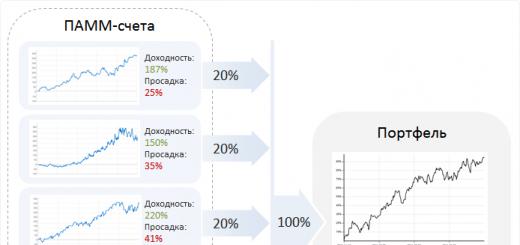Let's start with the fact that tourists spend money in hotels, restaurants, transport, etc. and thus infiltrate the economy of the host country. This penetration can be investigated by assessing direct and indirect penetration. The direct impact is the amount of tourist spending minus the amount of imports required to fully provide goods and services to tourists. Businesses that directly receive tourist spending also need to purchase goods and services from other sectors of the local economy. For example, hotels use the services of builders, utilities, banks, insurance companies, food manufacturers, and others. Thus, generating economic activity derived from these successive stages of spending is an indirect impact. However, it does not cover all the expenses of tourists during the direct impact, as part of the money goes out of circulation through imports and taxation.
During direct and indirect spending, the local population accumulates income in the form of wages, rent, etc. Local residents can spend this additional income on the purchase of domestic goods and services, thereby creating a new round of economic activity.
Tourism, however, can also have a negative impact on the economy. The production of tourism products and services requires the transfer of resources from other sectors of the economy, where the need for them is also high. For example, when labor resources move to the tourism sector from rural areas, there is a reduction in workers in the production of agricultural products and an overpressure is created in urban areas due to additional places in hospitals, schools, etc. Therefore, in order to draw up a complete picture, it is necessary to take into account and determine the price of using scarce resources for tourism instead of using them in other areas.
Inflation can lead to a reduction in the amount of food consumed by the local population. This inflationary risk is especially high in developing countries ah because of the inelasticity of supply there and the inability to import quality products due to the low exchange rate of the local currency against hard currencies. Inflation can be stopped by reducing demand from foreign and local consumers or by increasing imports through financial resources received from the same foreign guests.
From an economic point of view, tourism is one of the leading and most dynamic sectors of the world economy. For its rapid growth, it has been recognized as the economic phenomenon of the century. Tourism is the fundamental basis of the economy of many developed and developing countries of the world. According to the World Tourism Organization, the contribution of tourism to world economy equivalent to 11-12% of the world's gross national product. Tourism accounts for about 7% of total capital investment, 11% of global consumer spending, 5% of all tax revenues, about 7% of world export earnings, which in absolute terms is second only to income from the export of oil and oil products, and cars.
In some countries, tourism provides up to a quarter or even more of all revenues to the treasury. France, Spain, Switzerland, Italy, and even the former socialist countries Hungary and the Czech Republic receive from 15% to 35% of the gross national product from the tourism industry. For Cyprus, this figure is even higher - 45%.
Tourism has a huge impact on many key sectors of the economy: transport and communications, construction, Agriculture, trade, production of consumer goods. In the tourism industry, the dynamics of growth in the volume of services provided leads to an increase in the number of jobs much faster than in other industries. The importance of tourism as a source of foreign exchange earnings and the expansion of international contacts is constantly growing. Thus, tourism acts as a kind of catalyst for socio-economic development. And to confirm this, we will take a closer look at the socio-economic functions of tourism.
Tourism as a socio-economic phenomenon of our time is complex and multifaceted. For consumers of tourist services, it is a journey (trip, trip) made for recreational, business, educational and other purposes. For representatives of the tourism industry, this is an area of capital investment, as well as an area of activity that is aimed at shaping and meeting the needs of potential customers.
Thus, the impact of tourism on economic life country is as follows. Tourism is one of the most profitable and intensively developing sectors of the world economy. Incomes from tourism in the total volume of exports of goods and services rank second in the world after the export of oil and oil products.
The feasibility of active development inbound tourism due to the need to increase revenue currency funds to the country for the provided tourist and related services, which will balance the cash flows spent by Belarusian citizens on the purchase of tourist services abroad (through the mediation of domestic travel companies or by the citizens themselves). Such a positive trend will automatically find its expression in an improvement in the balance of services. In addition, the determination of the priority of the tourism business and its state support in our country (expressed, for example, in tax incentives) can contribute to an increase in the inflow of foreign investment, including direct investment, both in the creation of joint ventures in the field of tourism and in the development of tourism infrastructure (hotel and restaurant business). What is not unimportant for our country. It should also be noted that funds invested in tourism infrastructure have the fastest payback period.
The peculiarity of tourism (inbound, outbound, domestic) is that it affects the economy through the demand and consumption of tourists. The specificity of tourist consumption lies in the fact that not the goods are delivered to the consumer, but the consumer-tourist arrives at the place of production and consumption of goods and services. It is through consumption that tourism stimulates the economic activity of a country or a separate region. The incomes of hotels, catering establishments, transport enterprises, sports facilities, cultural institutions, etc. are increasing, the development of consumer services, communications, and car service enterprises is being stimulated. There is a growing demand for souvenirs and local handicrafts, which serve to promote the region. The turnover of trade enterprises, both special and general, is growing.
Of great importance is the fact that tourism provides considerable revenues to the state and local budgets through taxes from tourist enterprises, resort, customs and other fees.
The tourist market is a system of world economic relations in which the process of converting tourist and excursion services into money and the reverse transformation of money into tourist and excursion services takes place.
In other words, the tourism market is a sphere of manifestation economic relations between producers and consumers of the tourism product. If the economic interests of the producer and consumer of the tourist product coincide, then the act of buying and selling the tourist product takes place.
The market performs numerous functions: informational, intermediary, regulatory, foaming, stimulating, creative-destructive, differentiating. But the following can be distinguished as the fundamental functions of the tourism market:
- 1) the realization of the value and consumer value contained in the tourist product;
- 2) organization of the process of bringing the tourist product to the consumer (tourist);
- 3) economic provision of material incentives to work.
In the process of performing the first function by the tourist market, there is a movement of value, which is reflected through the exchange: money is a tourist product.
The completion of this exchange means the completion of the act of commodity-money relations, the realization of the value contained in the tourist product, and the public recognition of its consumer value. As a result, the normal course of social reproduction is ensured; cash for the development of the tourism industry.
The function of organizing the process of bringing the tourist product to the consumer is carried out through the creation of a network of travel agents and tour operators for its implementation.
The function of economic provision of material incentives to work lies in the fact that in the process of exchanging “money is a tourist product” for tourist market distribution as a necessary phase of reproduction appears in its final form. Employees of a travel company who receive monetary remuneration for their work are provided with material incentives to improve the quality and increase the quantity of the tourist product.
The tourist market is characterized by the presence of entities, i.e. legal and individuals who are producers and consumers of the tourist product. There are three subjects of the tourism market: the tourists themselves (consumers of the tourism product), tour operators and travel agents. The tourist market is characterized by capacity, the level of balance between supply and demand, the conditions for the implementation of the tourist product.
The mechanism of functioning of the tourism market is a system of action of economic levers to balance supply and demand for a tourism product, for the exchange of “money - a tourism product”, for cash flows and flows of a tourism product.
There are many definitions of the tourism industry. One of the first and most successful definitions was given by the UN Conference on Trade and Development in 1971. According to it, the tourism industry is a set of industrial and non-productive activities aimed at creating goods and services for travelers.
But the most correct definition for the RF is " tourism industry is a set of hotels and other accommodation facilities, means of transport, catering facilities, entertainment facilities and facilities, educational, business, recreational, sports and other facilities, organizations engaged in tour operator and travel agency activities, as well as organizations providing excursion services and services guides-translators" in accordance with the Federal Law "On the basics of tourism activities in the Russian Federation" dated October 04, 1996.
Importance of tourism to the global economy
Nowadays, tourism is a powerful global industry. For its rapid growth, it is recognized as the economic phenomenon of the century. In many countries, tourism plays a significant role in the formation of GDP, the creation of additional jobs, and employment. Tourism has a huge impact on such key sectors of the economy as transport, communications, construction, agriculture, that is, it acts as a kind of catalyst for socio-economic development.
The importance of tourism as a source of foreign exchange earnings and expansion of international contacts is constantly growing.
Tourism contributes to more intensive economic development not only of certain regions of the countries, but also of certain regions of the world.
In a post-industrial society, the service sector becomes an important factor in its economic development. Tourism as a socio-economic phenomenon has become a separate sphere of the world economy, which already today accounts for more than 30% of all exports of services or about 7% of all world exports of goods and services.
According to the WTO, the contribution of tourism to the world economy is 10.9% of world GDP. To serve so many people moving around the world, an even greater number of specialists from many tourism-related industries are involved, which are the essence of the tourism industry and infrastructure. Tourism employs 130 million people (every 15th).
According to UNWTO forecasts, tourism should take one of the leading places in the world economy in the future. Today, tourism revenues amount to about 1 trillion US dollars (UNWTO data from 01/28/2009) or 30% of world exports of services
Importance of tourism for the Russian economy
With transition Russian economy market rails in its tourism sector has undergone fundamental changes. Today, no one can ignore or downplay the importance of tourism in boosting the national economy. The domestic tourism industry has adapted to market changes faster than other industries. Many private firms were formed, which not only began to satisfy the needs of Russian citizens in tourism (primarily in foreign tourism), but also involved up to 130 thousand employees in this work, which had a significant positive impact on the labor market.
On the other hand, the sharply reduced state support for tourism has led to the almost complete disappearance of social tourism. The chances of survival were preserved mainly by commercial firms and types of tourism. At the same time, outbound tourism has increased enormously, which means, from an economic point of view, the export of capital from the country. Outbound tourism in terms of foreign exchange costs significantly exceeded foreign exchange earnings from inbound tourism. For 1994-1999 Russians spent about 42.5 billion dollars on foreign trips The most favorable year for the development of tourism in Russia was 2000, when the number of arrivals in the country amounted to more than 20 million people, and the total outbound flow exceeded 18 million people This industry is of great importance for the state as a whole, subjects of the Federation, municipalities, as well as an individual in particular. However, the lack of an effective state policy in the field of tourism over the past ten years has led to the fact that the share of the Russian Federation, despite its highest tourism potential, accounts for only 1% of the world tourist flow, which has reached 657 million arrivals per year. Unfortunately, at present the recreational potential of Russia is poorly used. Among the main reasons for the weak development of domestic tourism, the following can be noted: the lack of firm guarantees of private property, economic instability in the country, low level of service and business culture, lack of telecommunications, and environmental problems.
The share of the tourism industry in the GDP of the Russian state today is less than 5%. Let's hope for the further rapid development of the domestic tourism industry, which cannot be done without the help of the state.
Send your good work in the knowledge base is simple. Use the form below
Students, graduate students, young scientists who use the knowledge base in their studies and work will be very grateful to you.
Similar Documents
- - international tourism is a source of foreign exchange earnings for the country and a means of providing employment.
- - international tourism expands contributions to the balance of payments and the country's GNP.
- - international tourism contributes to the diversification of the economy, creating industries that serve the tourism sector.
- 1. Tourists. These are people who experience various mental and physical needs, the nature of which determines the direction and types of participation of these people in tourism activities as consumers.
- 2. Organizations providing goods and services to tourists. These are entrepreneurs who see tourism as an opportunity to make a profit by providing goods and services, taking into account the demand in the tourism market. tourism
- 3. Local authorities. They consider tourism as the most important factor in the economy, associated with the income that local citizens can receive from this business in the form of taxes that go to the local budget.
- 4. Host. The local population perceives tourism, first of all, as a factor in employment. For this group, the result of interaction with tourists, including foreign ones, is important.
The place of tourism in the country's economy. Directions of modernization and classification of types of tourism: educational, sports, amateur, suburban, business and religious. Characteristics of the tourism market of the most developed regions of the Russian Federation.
abstract, added 12/29/2014
History of development international tourism. The role of the tourist market in the modern economy. Current state, development trends of tourism in Russia. Development of tourism in the Tomsk region. The role of the global tourism market in the modern economy.
term paper, added 07/19/2013
Population, labor resources, the state of Hungary's foreign trade, the main macroeconomic indicators of the country's development. Statistical data on the dynamics of development and income of the tourism sector, the contribution of the tourism industry to the economy of Hungary and other countries.
term paper, added 07/06/2010
Tourist and resort-recreational potential of Russia and the Krasnodar Territory, prospects for the development of these areas of activity. Krasnodar Territory after the Olympic Games in Sochi, features of the socio-economic situation and future prospects.
control work, added 10/13/2014
Essence, concept and classification of tourism. The current state of the market of tourist services in Russia. Problems tourism business. Stages of development of tourism activities. The main measures to improve the efficiency of the company "ORENAIR".
term paper, added 10/12/2014
The essence of tourism and recreational activities, assessment of the role and importance of this industry in general economic system. Brief geographical and socio-economic characteristics of the Tyva Republic, analysis of the state and improvement of tourism development.
term paper, added 12/23/2014
Assessment of the role and importance of the recreational industry. The concept and principles of the development of recreational tourism, directions and prospects of this process in Russia today. Economic development of recreation on the example of the Krasnoyarsk Territory and the Republic of Khakassia.
- 85.50 KbIntroduction. The role of tourism in the global economy
Currently, the tourism industry is one of the most dynamically developing forms in international trade in services. In the past 20 years, the average annual growth rate in the number of foreign tourist arrivals in the world amounted to 5.1%, foreign exchange earnings - 14%. So, if in 1950 the number of tourists worldwide was 25 million, and the turnover of the tourism industry was 2.1 billion US dollars, then according to the World Tourism Organization (WTO) in 1995, 576 million tourist arrivals were registered in the world, receipts from international tourism reached 372 billion dollars). In general, the volume of foreign exchange earnings from tourism for the period from 1950 to 1995 increased 144 times.
The importance of tourism in the world is constantly increasing, which is associated with the increased influence of tourism on the economy of a particular country. In the economy of a particular country, international tourism performs a number of important functions:
International tourism is a source of foreign exchange earnings for the country and a means of providing employment.
International tourism expands contributions to the balance of payments and the country's GNP.
International tourism contributes to the diversification of the economy by creating industries that serve the tourism industry.
With the growth of employment in the field of tourism, incomes of the population grow and the level of well-being of the nation rises.
International tourism is one of the three largest export industries, behind the oil industry and the automotive industry, whose share in world exports is 11% and 8.6%, respectively. In 1991, the total income of the countries of the world from international tourism was 7% of total world exports and 3% of world exports of services.
International tourism in the world is extremely uneven, which is primarily due to different levels of socio-economic development of countries and regions. International tourism has received the greatest development in Western European countries. This region accounts for over 70% of the world tourism market and about 60% of foreign exchange earnings. Approximately 20% is accounted for by America, less than 10% - by Asia, Africa and Australia combined.
Such a development of international tourism relations has led to the creation of numerous international organizations that contribute to the improvement of the work of this sphere of international trade. (See Chapter 4) tourism. During the post-war years, a powerful research base and a system of professional training in the field of tourism were created.
So, international tourism, a characteristic feature of which is that a significant part of the services is produced with minimal costs on the spot, is playing an increasingly prominent role in the world economy. The tourism industry is one of the economic forwards, providing an impressive amount of added value.
1. International tourism: concept and classification
Tourism occupies a significant place in international relations. About 500 million people annually visit foreign countries for tourism purposes. International tourism is not only a popular form of recreation, but also an actively developing area of the world economy.
However, information on the development of international tourism is not absolutely accurate, since it is quite difficult to measure tourist flows. Due to the lack of a single way of recording them, it is much more difficult to compare statistical data between countries.
In addition, the concept of "tourism" is somewhat vague. First, tourism is considered to be the temporary movement of people from the places where they usually live and work to other places. By "temporary displacement" is conventionally understood a period of up to one year. Secondly, according to international statistics, foreign tourists include persons visiting another country (with at least one overnight stay) for any purpose other than professional activities paid in that country.
The regulation on licensing international tourism activities (dated 12.12.95 No. 1222) establishes that international tourism activities mean the reception of foreign tourists on the territory of the Russian Federation and the direction of tourists abroad. The federal law "On the Fundamentals of Tourism in the Russian Federation" states that "tourism is temporary trips (travels) of citizens of the Russian Federation, foreign citizens and stateless persons from a permanent place of residence for recreational, educational, sports, religious, professional, business and other purposes without engaging in paid activities in the country (place) of temporary residence.
Currently, tourism is classified:
By goals : route-cognitive; sports and recreation; amateur, including those with active modes of movement; business and congress tourism; resort, medical; ski; festival; hunting; ecological; shop tourism; religious; educational, etc.;
according to the degree of mobility : mobile; stationary; mixed;
according to the form of participation : individual; group; family;
according to the age : mature; youth; children; mixed; by duration: one day; multi-day; transit;
on the use of vehicles : automobile; railway; aviation; water; bicycle; equestrian; combined;
by seasonality : active tourist season, off-season (semi-season), off-season;
by geography : intercontinental; international (interregional); regional; local; border;
by mode of travel : pedestrian; using traditional means of transport; using exotic modes of transport (cable car, funicular, airship, hot air balloon, hang glider).
International tourism has an impact on the development of both individual countries and the world economy as a whole. With the expansion of international trade and other forms of international economic relations, the increase in the level of culture and education, international tourism will also develop.
2. Development of international tourism
In the 60-70s. international tourism has become worldwide. As a result, a world market was formed, in which all countries without exception participate. On average, about 65% of all international tourist trips are to Europe, about 20% to America and about 15% to other regions. Table 1 shows data on international tourism in 1990. Detailed statistical information on the development of international tourism can also be found in Year Book of Tourism Statistics published by the World Tourism Organization (WTO).
The main factors influencing the development of outbound tourism in highly developed countries are economic and social, primarily the growth of personal incomes of citizens (potential tourists) above the limits sufficient to meet the necessary needs.
Subjective reasons include the activities of state bodies that regulate the procedure for entry and exit from the country and the stay of foreign citizens on its territory, etc.
The development of international tourism in countries that mainly receive tourists is due to the desire to increase the inflow of foreign currency and create new jobs. Many countries through international tourism are trying to solve the problems of the balance of payments.
According to the World Tourism Council, in 1993 tourism accounted for 10.1% of the world's GDP and 10.5% of jobs.
According to WTO data, there are 15 countries in the world that specialize in tourism services, in which tourism revenues exceed export revenues, often by many times. These include small island states in the zone of humid subtropics and tropics - Barbados, Seychelles, etc. In 45 countries, tourism receipts exceed 1/4 of the volume of exports. These are mainly developing countries with underdeveloped economies. The exceptions are Austria, Spain, Portugal, etc.
International tourism receipts refers to payments for goods and services made by foreign tourists during their stay in the country, excluding income from additional employment and payment for international transport.
International travel expenses include payments for products and services produced by the residents of a given country abroad. Incomes from international tourism in 1990 amounted to 255,006 million dollars. The United States received the largest income (40,579 million dollars).
Spending by American tourists abroad also turned out to be higher than spending by tourists from other countries. The relationship between income and expenditure from international tourism in countries and regions varies. Spain has the largest positive balance (+14,339 million dollars), followed by France (+7,761 million dollars), Austria (+6,805 million dollars) and Italy (+5,916 million dollars), and the largest negative balance - Japan (-21 350 million dollars) and Germany (-19 153 million dollars) (see table 1).
It is generally believed that in addition to the cost of travel to and from the country, a foreign tourist spends about 40% of his expenses on food, 30% on accommodation, 8% on travel within the country, and 22% on other expenses.
As a result of the expenses incurred by foreign tourists in the host country, firstly, the income of travel companies increases ( direct effect); secondly, the demand from the tourism sector of the economy for the goods and services of suppliers is increasing, which in turn contributes to an increase in demand for the goods and services of their suppliers and, consequently, an increase in income in all sectors ( indirect effect), thirdly, the personal incomes of the population directly or indirectly associated with the tourism business are increasing, which causes an increase in consumer demand ( forced effect). Indirect and forced effects are collectively called secondary effect.
Although the first place in terms of the importance of international tourism for national economies is given to foreign exchange earnings, along with making a profit, a significant leakage of currency is also possible. Developing countries are forced to import a significant amount of products and goods for tourists, as well as the necessary equipment for the tourism industry. According to the World Bank, imports of goods for tourists account for 15-55% of revenues, depending on the development of the economy and the focus of the tourism industry on local resources. There are also imports due to the impact of the "demonstration effect". Tourists coming from industrialized countries showcase better quality products and a wider range of goods, which is a "live" advertisement and promotes the import of foreign consumer goods.
Tourism is also important for the labor market. According to American experts, the tourism industry (including domestic) is the largest in terms of the number of jobs in most countries, providing jobs for over 100 million people. The tourism industry is one of the most labour-intensive industries. For example, in North America it accounts for 5% of GNP and 8% of all employees, in Western Europe - 7 and 11%, respectively.
3. Prospects for the development of international tourism
The World Tourism Organization (WTO) has published a forecast for the development of tourism until 2020.
In the first place in terms of attendance will be China. The most dynamically developing tourist country is Türkiye.
In 2000, world tourism revenues will amount to $621 billion.
In 2020, they will rise to $2 trillion.
The first trip to the moon from the Greek travel company Manos Travel will take place on December 1, 2001 from the base of SEATL (USA) and will cost 105 thousand dollars.
International tourism has an impact on the development of both individual countries and the world economy as a whole. With the expansion of international trade and other forms of international economic relations, the increase in the level of culture and education, international tourism will also develop.
At a certain stage in the development of the economy, when the need for travel increased dramatically, there were also manufacturers of travel services. This led to the formation of a special kind of product - tourism. Tourism is not a commodity of prime necessity, therefore it becomes a vital need of a person only at a certain level of his income and a certain level of wealth of society.
Currently, the tourism industry is one of the most dynamically developing forms in international trade in services. Over the past 20 years, the average annual growth rate in the number of arrivals of foreign tourists in the world amounted to 5.1%, foreign exchange earnings - 14%. So, if in 1950 the number of tourists worldwide was 25 million, and the turnover of the tourism industry was 2.1 billion US dollars, then according to the World Tourism Organization of the United Nations (WTO) in 1995, 576 million tourist arrivals, receipts from international tourism reached 372 billion dollars. In general, the volume of foreign exchange earnings from tourism for the period from 1950 to 1995 increased 144 times.
At the beginning of the new millennium, tourism has firmly established itself in many countries as the main sector of the economy and the fastest growing economic sector providing inflow foreign exchange and job creation.
International tourism provides the world's highest export earnings and is an important balance of payments factor for most countries.
The tourism industry has become one of the most important drivers of job creation in the world. The development of tourism stimulates the flow of huge investments into infrastructure, most of which goes to improve the quality of life of both the local population and tourists. It provides governments with significant financial revenue in the form of tax revenues. Most of the new tourism jobs and businesses are created in developing countries, which balances economic growth opportunities and also helps to keep residents in rural areas, preventing them from escaping to overcrowded cities.
Intercultural ties and personal friendships that arise in the process of tourist exchange are an important factor in improving international understanding and contribute to strengthening peace between the peoples of the globe.
The World Tourism Organization encourages national governments to develop partnerships with private sector enterprises, local government representatives and non-governmental organizations, thus taking a more active part in the development of tourism.
Convinced that tourism can be used effectively in the fight against poverty, the UNWTO committed itself to participating in the implementation of the UN Millennium Development Goals through the launch of a new initiative to promote sustainable tourism as a means of eradicating poverty. Known as ST-EP (Sustainable Tourism - Poverty Eradication), the program incorporates the two organizations' years of work to promote sustainable tourism to eradicate poverty. This program was introduced in 2003.
The importance of tourism in the world is constantly increasing, which is associated with the increased influence of tourism on the economy of a particular country. In the economy of a particular country, international tourism performs a number of important functions:
With the growth of employment in the field of tourism, incomes of the population grow and the level of well-being of the nation rises.
International tourism is one of the three largest export industries, behind the oil industry and the automotive industry, whose share in world exports is 11% and 8.6%, respectively. In 1991, the total income of the countries of the world from international tourism was 7% of total world exports and 3% of world exports of services.
International tourism in the world is extremely uneven, which is primarily due to different levels of socio-economic development of countries and regions. International tourism has received the greatest development in Western European countries. This region accounts for over 70% of the world tourism market and about 60% of foreign exchange earnings. Approximately 20% is accounted for by America, less than 10% - by Asia, Africa and Australia combined.
This development of international tourism relations has led to the creation of numerous international organizations that contribute to the improvement of the work of this sphere of international trade. Many highly developed countries of the West, such as Switzerland, Austria, France, have built a significant share of their wealth on income from tourism. Buy a virtual server cheap vps. During the post-war years, a powerful research base and a system of professional training in the field of tourism were created.
So international tourism feature which is that a significant part of the services are produced locally at minimal cost, is playing an increasingly prominent role in the global economy. Tourism industry is one of the economic forwards that provide an impressive amount of added value.
Of essential importance for the development of international tourism was also the desire of individual countries to increase foreign exchange earnings from tourism and the creation for this purpose of an entire branch of the economy - the tourism industry. The tourism industry is understood as a set of manufacturing, transport and trade enterprises that produce and sell tourism services and goods of tourist demand. This includes hotels and other accommodation facilities, means of transport, catering establishments, enterprises producing souvenirs and other tourist goods. More than 214 million people are employed in the tourism industry worldwide.
Tourism terminology is undergoing significant changes in accordance with fast pace development and formation of both social relations and tourism, its branches and types. The interpretation of tourist terms is the subject of fierce discussions among developers of tourism theory. In order to determine the significance of tourism and more fully describe the scope of its activities, it is necessary, first of all, to identify various groups of subjects that interact in tourism:
Thus, tourism can be defined as a set of phenomena and relationships that arise from the interaction of tourists, suppliers, local authorities and the local population in the process of tourism activities.
Travel, tourism is a complex of related business areas. The profession closest to tourism is the distribution of tours, that is, the work of travel agencies. Directly involved in tourism transport organizations, catering establishments and accommodation establishments. Related types of business can also include financial structures that finance the development of the service sector.
International tourism has become an important source of foreign exchange earnings for many developed and developing countries. For example, the share of income from foreign tourism in total amount revenues from the export of goods and services is: in Spain - 18.3%, Austria - 11.8%, Greece - 33.6%, Portugal - 14.9%, Cyprus - 53%. In most developing countries, foreign tourism accounts for 10-15% of income from the export of goods and services (India, Egypt, Peru, Paraguay, Costa Rica). The growing importance of tourism in economic development A growing number of countries confirm the assumption that the share of receipts from international tourism will increase in the next decade.
International tourism has a significant impact on solving the problem of employment, providing jobs on a temporary and permanent basis. According to the World Travel and Tourism Council, in 2004, 8.1% of all workers were employed in world tourism, that is, every twelfth worker was employed in the tourism sector. Forecasts show that in 2014 the number of employees in tourism will be 8.6% of the total employed population in the world. In the United States, according to national statistics, the tourism industry provides more than 16.7 million jobs, which is 11.9% of the total number of jobs in the country.
The contribution of tourism to employment and the creation of new jobs determine the socio-economic significance of this sector.
The development of tourism has a stimulating effect on such key sectors of the economy as transport, communications, trade, construction, agriculture, production of consumer goods and, taking into account the multiplier effect, is one of the most promising areas for structural restructuring of the economy.
The increase in capital investment in tourism also testifies to the economic importance of this area at the world level. Thus, in 2004, the share of tourism in the total investment in the world was 9.4% or 802.3 billion dollars.
In these countries of the Asia-Pacific region, exports of goods and services complement each other. The development of these sectors is based on the rapid rise of telecommunications, international transport, in particular air transport, and the banking sector. Thus, the export of goods leads to an increase in business travel to these countries, which, in turn, stimulate the development hotel business and the entertainment industry, in a word - inbound tourism. The latter increases foreign exchange reserves and stimulates economic growth.
In 2012, according to the World Travel and Tourism Council (WTTC), the global hospitality industry outperformed other sectors of the global economy, including manufacturing, retail, financial services and communications. The contribution of tourism to global GDP grew by 3%, and the number of people employed in the industry increased by 5%, reaching 260 million. Thus, for the first time, one job out of 11 in the world was created by the tourism industry. The industry accounted for 10% of all new jobs created in 2012.
The economic contribution of tourism and travel, if we consider the direct, indirect and mediated effect, amounted to $6.6 trillion in 2012. (annual growth in the range of $500 billion), as well as $765 billion in investments and $1.2 trillion. export services (in 2012 prices). Together, this amounts to 9% of world GDP.
The most productive of the 20 largest economies in the world last year was the tourism industry of South Korea, China, South Africa and Indonesia. The European market growth of 1% and the US market of 2% seem especially low compared to the 10% growth of South Korea, the 7% growth of China and South Africa.
According to WTTC experts, the global tourism industry will maintain the same growth dynamics in 2013. According to forecasts, the industry's contribution to GDP will grow by 3.2%, while global economic growth is expected at 2.4%. In 2013, the hospitality industry will already account for 266 million jobs. Employment growth will again exceed the global average.










